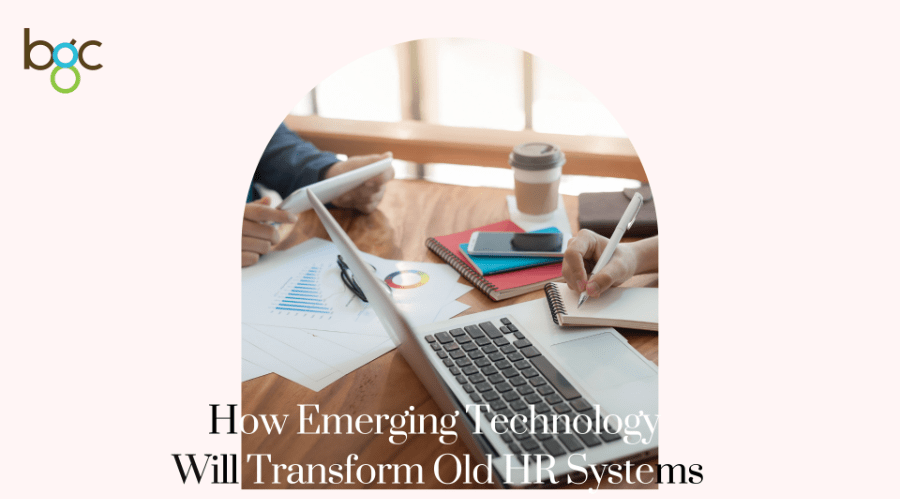While almost all industries continue to go through digital transformation, the same couldn’t be said for most HR functions. Until now. Right now, emerging technologies like artificial intelligence and people analytics are increasingly being adopted in a wide range of use cases across industries. In fact, HR Technologist mapped out this boom in the industry last year and they uncovered more than 160 local and overseas HR Tech providers in Singapore. Most of these companies provide services that range from Talent Acquisition tools to payroll with HR systems.
This shift towards the accelerated boom of HR technologies signals adoption beyond compliance, and focuses more on increasing efficiency, reducing costs, and improving people management. On the other hand, some fear that these emerging technologies, especially automation, will result in job losses in certain HR functions. However, most are optimistic as it benefits their everyday work and adds value to their company. In fact, it represents the future of HR – data-driven, engaging, and employee-centered, where the department is complemented by technologies.
Below are four key improvements to your organisation’s current HR system with the help of modern technology and digital transformation:
1. One platform to streamline internal communication

The rise of enterprise communications technologies has driven the burgeoning outsourcing and gig economy. Today, BPO has been gaining steam as vendors offer high-quality support to their non-core business functions. Enterprise communications apps like Slack and Microsoft Teams have also changed the way projects are being managed. With increased collaboration and real-time communication, HR departments can better manage their employees and fold their functions into workers’ everyday projects. For example, Slack has partnerships with HR tools like Workday to give workers access to information about their leaves, benefits, and schedules without leaving the app. These tools enable HR to focus on more important responsibilities.
2. Data-driven decision making with automated reports
.png)
Workforce management systems are revolutionising HR functions. It allows managers to work faster, make more informed decisions, and provide real-time solutions in a single platform. Some of the specific ways these solutions help are through scheduling, dispatching, and monitoring activities. These benefits are currently being seen in Australia. In fleet management, a post by Verizon Connect highlights how a GPS vehicle tracking system helps managers get a bigger picture of the driver’s journeys in easy-to-read tracking dashboards. This turns the data into useful, actionable information that the company can use to gain knowledge on how employees spend their time in order to create a better working environment.
If you're looking for a flexible workforce management software that enables automated payroll calculation and leave tracking, consider learning about BGC’s Workforce Management System WECARE™ here.
3. AI-enabled recruitment specialists
.png)
The recruitment phase is always one of the most tiring processes in the HR department which is why recruitment and HR outsourcing continues to boom today. Assisted by AI-enabled recruitment platforms, forward looking recruiters are far more capable of going through hundreds of resumes and portfolios than your HR team will ever be. Technology is able to provide specialist recruiters at BGC Group easy access to platforms that help automate candidate screening. This saves HR a lot of time and costs in talent acquisition. What’s more, it helps HR departments avoid bad hires, which could otherwise cost the company more, decrease overall employee morale, and put the organisation at risk. In Scottsdale, Arizona in the USA, a company called Paradox has created an AI recruitment tool called Olivia. The company stated, “Olivia helps companies capture and screen candidates, improve conversions, and answer all candidate questions. She delivers one-to-one candidate experience at scale and even handles interview scheduling.”
Of course, there are cons of AI-hiring as well - evidently so when it comes to finding talents with specialised tech skillsets and soft skills that a trained specialist recruiter would be able to detect. When it comes to specialised hires, it would be good to keep in mind recruitment outsourcing for mass-volume headcounts or using executive search services.
4. People analytics to better understand employee engagement
.png)
People analytics has been a buzzword for the past years in HR circles, but it’s not as widely implemented as some would assume. Singapore’s overall employee engagement has dipped in the past years, according to a study from HR consulting company Aon Hewitt. In fact, the Singaporean workforce stands as one of the least engaged in Asia. As experts note, employee engagement is often correlated with efficiency and revenue growth. That’s why people analytics platforms render invaluable service in providing a data-driven approach to increasing workforce satisfaction.
As technologies become more mature, this also changes not only the structures but also the capabilities required for the HR departments.
Learn more about the importance of employee personas when candidate searching here.
This article was written for BGC Group by Courtney Young,.
Last updated by BGC Group on 12 January 2021.
Read More: How will Automation Shape the Future for HR?
